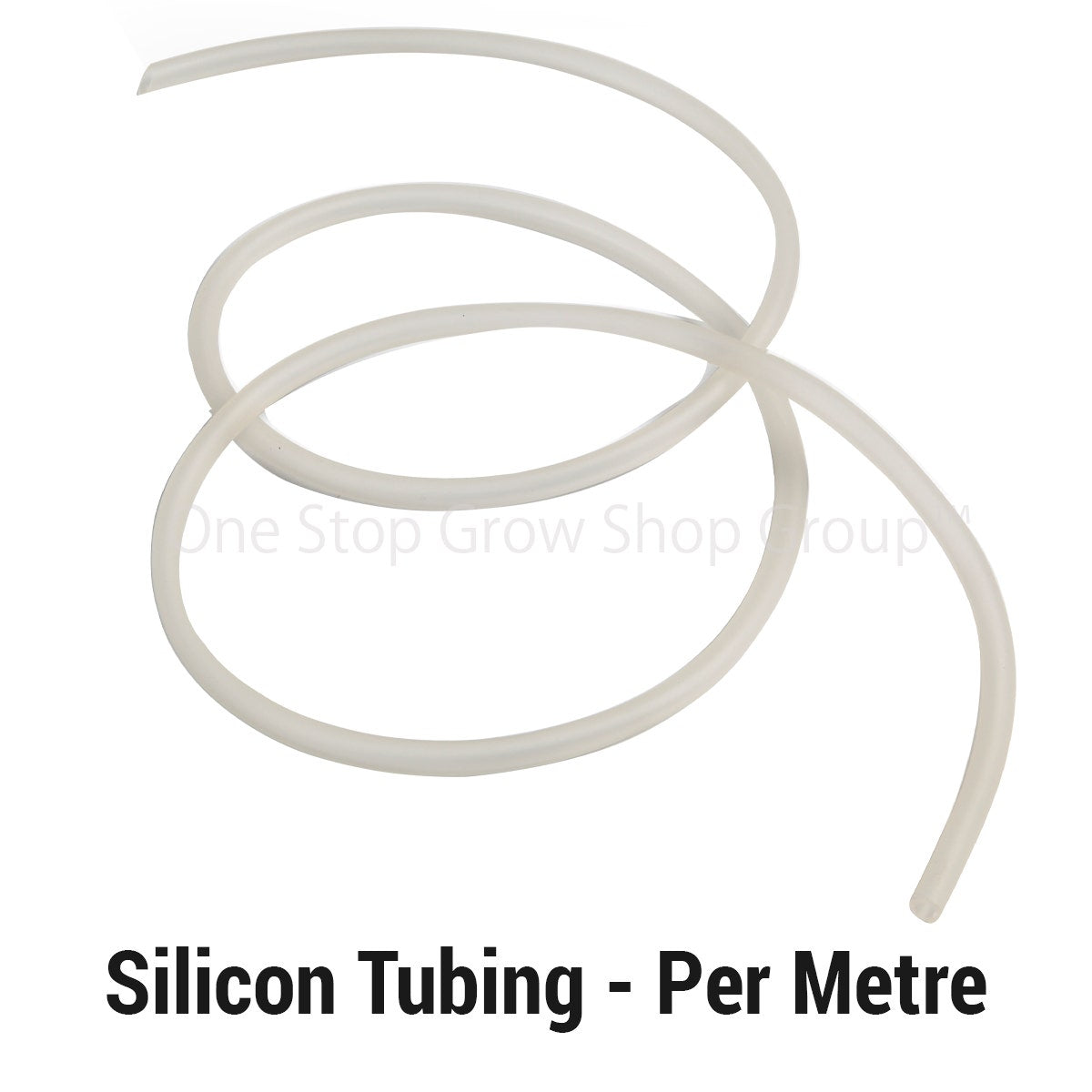Silicon Airline Tubing
Silicon Airline Tubing is the easiest way to connect air pumps and airstones together. Silicon Airline Tubing is more flexible and easier to work with than PVC Airline Tubing and is slightly cheaper too. Silicon Airline Tubing can be purchased by the metre in continuous lengths up to 30 metres or as a full roll.
How Silicon Airline Tubing Works
Silicon Airline Tubing fits onto standard Air pump outlets and Airstone inlets (as well as check-valve connections). Silicon Airline Tubing is flexible and is tough enough to withstand normal grow-room use. Silicon Airline Tubing transfers the air pressure produced from your air pump to Airstones or venturi pumping system (like that used in an AquaFarm/WaterFarm). The great thing about Silicon Airline Tubing is that it is far more flexible and easier to work with than standard PVC Airline Tubing which is a little bit more expensive.
To see our full Air Pumps & Airstones range, click here
Contains
Contains
Silicon Airline Tubing, either sold by the metre or as a complete 100 metre roll (maximum continuous length - 30 metres)
About
- Silicon - Tough material
- More flexible than PVC Tubing and easier to work with
- Fits straight onto air pump outlets and airstone inlets
- Excellent value-for-money
- Sold off the roll by the metre or as a full roll, maximum continuous length: 30 metres
- 4mm inside diameter
- 6mm outside diameter
How To Use
How to Use Silicon Airline Tubing
With your air pump switched off, gently push the end of the Silicon Airline Tubing onto your air pump outlet. Dipping the end into warm water for a few moments will help soften the silicon slightly to make the job easier. Never apply too much pressure to inlets or outlets when fitting airline tubing as this may cause them to break. Ensure that the airline has been pushed on far enough to create a good air-tight seal and that the air-line won't fall off.
Run the airline to where your airstone / venturi system will be. Try to make the run as short as possible because the longer the airline, the lower the pressure will be at the end. If you have a multi-outlet air pump, the length of the runs of airline from each outlet need to be the same. If the lengths of the runs of airline are different then the shorter runs will have a much higher pressure at the ends and the longer runs will have much less air pressure at the ends. It is generally wise to allow the airline to be a little slack so that there is a bit to play about with.
Carefully cut the end of the airline neatly with sharp scissors in the appropriate place. Push the end of the airline onto the inlet of your airstone or into the venturi system. Ensure that the airline has been pushed on far enough to create a good air-tight seal and that the air-line won't fall off. Again, dip the end of the airline into warm water for a few moments to make the job easier and to reduce the chance of damage to the airstone inlet.
"Back-siphoning" can occur if you air-pump is at a lower height than the highest water-line in your reservoir/system. The risk of this is greatest if the air pump is accidentally switched off or there is a power outage. If water back-siphons from your reservoir and into your air pump then it will almost certainly cause damage. For this reason, your air pump should be placed on a surface which is higher than the highest waterline in your reservoir system. We recommend putting a non-return / check valve into the airline to make doubly sure that back-siphoning cannot occur.
Once everything has been put in place, your air-pump can be switched back on.
